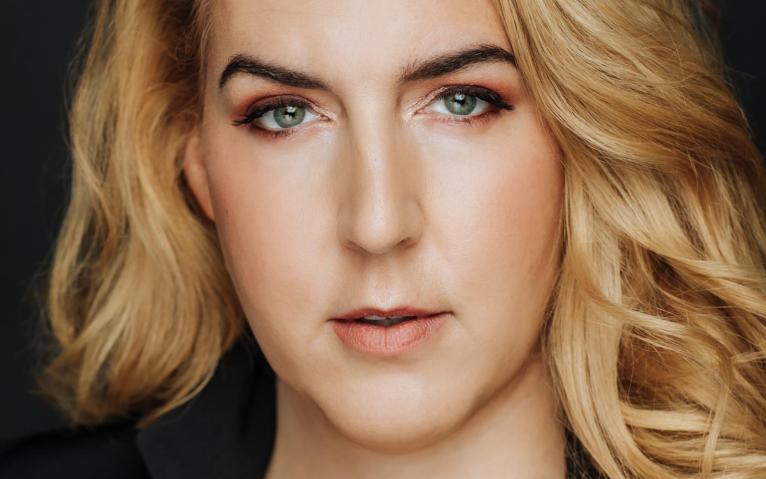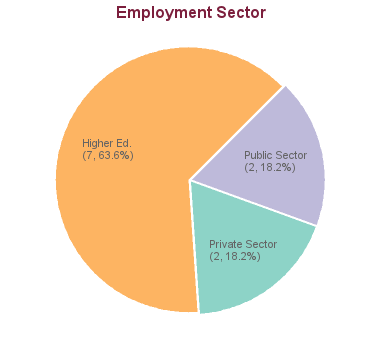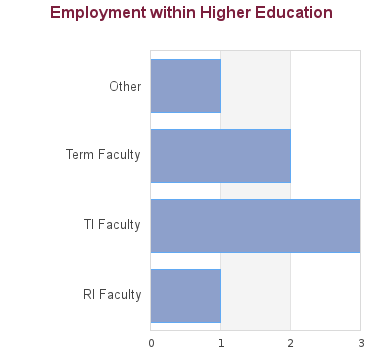
Luna Ferguson
Job Title
Actor, Writer, Producer
Employer
Turbid Lake Pictures & Self-Employed

Review details about the recently announced changes to study and work permits that apply to master’s and doctoral degree students. Read more
The PhD in Gender, Race, Sexuality and Social Justice is an interdisciplinary program which allows students to explore their interests in diverse areas while employing feminist, intersectional, and decolonizing methodologies. It is intended to be flexible and to accommodate the needs of individual students.
The Faculty of Graduate and Postdoctoral Studies establishes the minimum admission requirements common to all applicants, usually a minimum overall average in the B+ range (76% at UBC). The graduate program that you are applying to may have additional requirements. Please review the specific requirements for applicants with credentials from institutions in:
Each program may set higher academic minimum requirements. Please review the program website carefully to understand the program requirements. Meeting the minimum requirements does not guarantee admission as it is a competitive process.
Applicants from a university outside Canada in which English is not the primary language of instruction must provide results of an English language proficiency examination as part of their application. Tests must have been taken within the last 24 months at the time of submission of your application.
Minimum requirements for the two most common English language proficiency tests to apply to this program are listed below:
Overall score requirement: 90
Reading
22
Writing
21
Speaking
21
Listening
22
Overall score requirement: 6.5
Reading
6.0
Writing
6.0
Speaking
6.0
Listening
6.0
Some programs require additional test scores such as the Graduate Record Examination (GRE) or the Graduate Management Test (GMAT). The requirements for this program are:
The GRE is not required.
Deadline to submit online application. No changes can be made to the application after submission.
Transcript DeadlineDeadline to upload scans of official transcripts through the applicant portal in support of a submitted application. Information for accessing the applicant portal will be provided after submitting an online application for admission.
Referee DeadlineDeadline for the referees identified in the application for admission to submit references. See Letters of Reference for more information.
All applicants have to submit transcripts from all past post-secondary study. Document submission requirements depend on whether your institution of study is within Canada or outside of Canada.
A minimum of two references are required for application to graduate programs at UBC. Each graduate program determines the type of reference (e.g. academic, professional) and number of references they require which can range from 2 to 4. References should be requested from individuals who are prepared to provide a report on your qualifications for the program.
Many programs require a statement of interest, sometimes called a "statement of intent", "description of research interests" or something similar.
Students in research-based programs usually require a faculty member to function as their thesis supervisor. Please follow the instructions provided by each program whether applicants should contact faculty members.
Permanent Residents of Canada must provide a clear photocopy of both sides of the Permanent Resident card.
All applicants must complete an online application form and pay the application fee to be considered for admission to UBC.
| Fees | Canadian Citizen / Permanent Resident / Refugee / Diplomat | International |
|---|---|---|
| Application Fee | $116.25 | $168.25 |
| Tuition * | ||
| Installments per year | 3 | 3 |
| Tuition per installment | $1,875.34 | $3,294.66 |
| Tuition per year (plus annual increase, usually 2%-5%) | $5,626.02 | $9,883.98 |
| Int. Tuition Award (ITA) per year (if eligible) | $3,200.00 (-) | |
| Other Fees and Costs | ||
| Student Fees (yearly) | $1,144.10 (approx.) | |
| Costs of living | Estimate your costs of living with our interactive tool in order to start developing a financial plan for your graduate studies. | |
Applicants to UBC have access to a variety of funding options, including merit-based (i.e. based on your academic performance) and need-based (i.e. based on your financial situation) opportunities.
From September 2024 all full-time students in UBC-Vancouver PhD programs will be provided with a funding package of at least $24,000 for each of the first four years of their PhD. The funding package may consist of any combination of internal or external awards, teaching-related work, research assistantships, and graduate academic assistantships. Please note that many graduate programs provide funding packages that are substantially greater than $24,000 per year. Please check with your prospective graduate program for specific details of the funding provided to its PhD students.
This results in a net balance (any funding provided to the student minus tuition and fees) mean of $29,089 and median of $37,233.
All applicants are encouraged to review the awards listing to identify potential opportunities to fund their graduate education. The database lists merit-based scholarships and awards and allows for filtering by various criteria, such as domestic vs. international or degree level.
Many professors are able to provide Research Assistantships (GRA) from their research grants to support full-time graduate students studying under their supervision. The duties constitute part of the student's graduate degree requirements. A Graduate Research Assistantship is considered a form of fellowship for a period of graduate study and is therefore not covered by a collective agreement. Stipends vary widely, and are dependent on the field of study and the type of research grant from which the assistantship is being funded.
Graduate programs may have Teaching Assistantships available for registered full-time graduate students. Full teaching assistantships involve 12 hours work per week in preparation, lecturing, or laboratory instruction although many graduate programs offer partial TA appointments at less than 12 hours per week. Teaching assistantship rates are set by collective bargaining between the University and the Teaching Assistants' Union.
Academic Assistantships are employment opportunities to perform work that is relevant to the university or to an individual faculty member, but not to support the student’s graduate research and thesis. Wages are considered regular earnings and when paid monthly, include vacation pay.
Canadian and US applicants may qualify for governmental loans to finance their studies. Please review eligibility and types of loans.
All students may be able to access private sector or bank loans.
Many foreign governments provide support to their citizens in pursuing education abroad. International applicants should check the various governmental resources in their home country, such as the Department of Education, for available scholarships.
The possibility to pursue work to supplement income may depend on the demands the program has on students. It should be carefully weighed if work leads to prolonged program durations or whether work placements can be meaningfully embedded into a program.
International students enrolled as full-time students with a valid study permit can work on campus for unlimited hours and work off-campus for no more than 24 hours a week during academic sessions.
A good starting point to explore student jobs is the UBC Work Learn program or a Co-Op placement.
Students with taxable income in Canada may be able to claim federal or provincial tax credits.
Canadian residents with RRSP accounts may be able to use the Lifelong Learning Plan (LLP) which allows students to withdraw amounts from their registered retirement savings plan (RRSPs) to finance full-time training or education for themselves or their partner.
Please review Filing taxes in Canada on the student services website for more information.
Applicants have access to the cost estimator to develop a financial plan that takes into account various income sources and expenses.
15 students graduated between 2005 and 2013. Of these, career information was obtained for 11 alumni (based on research conducted between Feb-May 2016):


These statistics show data for the Doctor of Philosophy in Gender, Race, Sexuality and Social Justice (PhD). Data are separated for each degree program combination. You may view data for other degree options in the respective program profile.
This program went through a name change in previous years that may have included curriculum changes. It was previously known as: Doctor of Philosophy in Women's Studies and Gender Studies until 2013, Doctor of Philosophy in Women's Studies and Gender Relations until 2011. Historical data on this page may include data collected under the previous name(s) of the program.
| 2023 | 2022 | 2021 | 2020 | 2019 | |
|---|---|---|---|---|---|
| Applications | 39 | 51 | 82 | 56 | 52 |
| Offers | 4 | 2 | 3 | 4 | 5 |
| New Enrolment | 3 | 2 | 3 | 3 | 4 |
| Total Enrolment | 28 | 27 | 27 | 23 | 20 |
Students in research-based programs usually require a faculty member to function as their thesis supervisor. Please follow the instructions provided by each program whether applicants should contact faculty members.
These videos contain some general advice from faculty across UBC on finding and reaching out to a supervisor. They are not program specific.
This list shows faculty members with full supervisory privileges who are affiliated with this program. It is not a comprehensive list of all potential supervisors as faculty from other programs or faculty members without full supervisory privileges can request approvals to supervise graduate students in this program.
| Year | Citation |
|---|---|
| 2025 | Dr. Jensen studied experiment and experience through Georges Bataille’s proposal that "inner experience" constitutes the field of transformation as we struggle for social change. In French the word experience also means experiment. Adjoining Bataille, I argue that the experiment of thinking together contributes to our ability to practice transformation. |
| 2024 | Dr. Beljaars studied the evolution of salsa in the Netherlands, exposing Antillean influences on Dutch culture. She also examined interactions in the Afro-Latin dance scene, illuminating the complexities of identity and belonging in Dutch postcolonial society and emphasizing the criticality of race in understanding Dutch cultural citizenship. |
| 2023 | Dr. Desideri reflects on a set of artistic practices which, rather than creating objects, create the conditions for collaborative thinking and making, that is called study. Her Studio Practice proposes a novel approach to artmaking as study and to study as artmaking. |
| 2023 | Dr. Pauker's cross-disciplinary work sketches intertwining genealogies of philosophy and journalism. Advocating philosophical journalism as a mode of critical questioning in the present, Pauker disrupts normative configurations of truth and truth-telling in journalism, philosophy, and knowledge production in the western tradition, more broadly. |
| 2022 | Dr. St. Rose Yeo studied the possibilities generated by creative practices to subvert temporal dominance as formulated in Western modernity. Her work contributes to ongoing discourses that suggest creative practices play a critical role in transforming systems of harm in our global present. |
| 2022 | Dr. Lowik investigated the tactics that trans people undertake when accessing reproductive health care spaces that are not equipped to serve their needs. They found that the onus to remedy systematic erasure often falls on trans people and identified the structural forces that prevent this erasure from being addressed systematically. |
| 2022 | From 2015 to 2021, Dr. Bhandal led a research project to study social justice perspectives in Canadian nursing and medical education. Specifically, she focused on two areas of theory and practice from social justice studies, decolonization and intersectionality. The findings have been published in various academic and popular venues. |
| 2021 | Dr. Koostachin examines how positionality shapes the creative process of Indigenous documentarians, revealing the impacts on core concepts, themes, and forms within their practice of documentary. Her research methodology is rooted in a paradigm that privileges InNiNeWak (Cree) ways of being. |
| 2019 | Dr. Elradi investigated the relationship between women's organizations, nationalism and violence in Sudan and discovered that violence is perceived differently by local, national and international women's organizations. Findings suggest that mitigating racialized gendered violence in Sudan and the Nuba Mountains will require national and transnational alliances. |
| 2018 | Dr. Nayebzadah studied the representation of Afghan-Canadian Muslim diaspora in postcolonial fiction through the practice of a/r/tography. Her work raises questions about biases, presuppositions, and world-views on Muslims. This research informs discussion around the role of authors as constructing and consolidating notions of "self" and "other". |
Faculty expertise in Gender, Race, Sexuality and Social Justice include gender and development, critical studies in sexuality, decolonizing and post-colonial methodologies, race, gender and cultural studies (including Asia), critical race theory, gender and Canadian history and literature (in English and French), transgender studies, gender issues in health, and feminist legal studies.
Departments/Programs may update graduate degree program details through the Faculty & Staff portal. To update contact details for application inquiries, please use this form.

This city won’t disappoint. It has it all: sea, parks, mountains, beaches and all four seasons, including beautiful summers and mild, wet winters with snow.